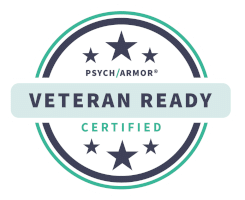You might think there is a stark difference between anxiety and depression. Anxiety causes excessive worry and frustration, while depression causes lethargy and loss of interest. While they might seem like opposites, these two mental health conditions are closely related. They’re almost like two sides of the same coin.
Both anxiety and depression are distinct mental health conditions, but they often coexist and influence each other. There is also a significant overlap between anxiety symptoms and depression symptoms. What is the exact link between anxiety and depression, though? Can anxiety cause depression? Does depression lead to anxiety?
Continue reading to understand the relationship between these conditions, learn how to determine whether you or a loved one may be experiencing anxiety or depression, and find support and healing.
Anxiety Disorders
Anxiety disorders are a group of conditions characterized by excessive worry or fear over real or perceived threats. These worries and fears do not go away; they get worse over time. Symptoms of anxiety may interfere with daily activities, including responsibilities at home, work, or school.
There are several different anxiety disorders, including:
- Generalized anxiety disorder
- Panic disorder
- Social anxiety disorder
- Phobia-related disorders
While symptoms are determined by the particular anxiety disorder, some general symptoms include:
- Feeling restless or wound up
- Fatigue
- Difficulties concentrating or remembering things
- Irritability
- Headaches, muscle aches, or other unexplained pains
- Difficulties controlling worry or fear
- Problems sleeping, including trouble falling asleep or staying asleep
Clinicians diagnose anxiety disorders using the Diagnostic and Statistical Manual of Mental Disorders (DSM-5). Each type of anxiety disorder has specific criteria that help mental health professionals determine a diagnosis.1 Although there is no “cure” for anxiety disorders, you can learn to manage and live with your symptoms with the right interventions and treatment.
Depressive Disorders
Depressive disorders are a group of mood disorders that affect how a person thinks, feels, and manages daily activities. Symptoms range from mild to severe and may cause serious disruption to a person’s ability to handle their responsibilities. There are multiple types of depressive disorders, including:
- Major depressive disorder
- Persistent depressive disorder
- Seasonal depression
- Perinatal depression
- Depression with psychotic features
Some symptoms of depression include:
- Feeling sad, anxious, or “empty”
- Feeling hopeless or pessimistic
- Feeling irritable, frustrated, or restless
- Feeling guilty, worthless, or helpless
- Losing interest in hobbies or activities
- Fatigue or limited energy
- Difficulties concentrating or making decisions
- Sleeping problems, including oversleeping or insomnia
- Changes in appetite or weight
- Unexplained physical aches and pains
- Self-harm
- Thoughts of death
- Suicide attempts
A person must experience at least a handful of these symptoms every day for at least two weeks to be diagnosed with depression. Again, the DSM-5 helps mental health clinicians determine the presence and severity of a depressive disorder so they can provide the right level of care.
Can Anxiety Cause Depression?
Anxiety and depression are two of the most common mental health disorders. About 19.1% of adults in the U.S. meet the criteria for an anxiety disorder, and about 8.3% experienced at least one major depressive episode in the past year.2,3 And while anxiety and depression are distinct conditions outlined in the DSM-5, they are also closely connected.
So, can anxiety cause depression? Ultimately, there is no single cause of either diagnosis. According to current research, both depression and anxiety are caused by a combination of genetic, biological, environmental, and psychological factors. This includes things like a personal or family history of anxiety and depression symptoms as well as extreme stress, major negative life changes, or trauma.
If your anxiety and depression symptoms are short-term responses to a temporary situation, it’s unlikely that one condition will cause the other to develop. However, existing medical or mental health conditions can trigger the onset of anxiety or depression. This means if you are diagnosed with one condition, it may cause the other to develop. But how can anxiety cause depression?
Avoidance
Avoidant behaviors are common among people with anxiety disorders. Anxiety causes fear and stress around particular people, situations, or circumstances. To keep from feeling that fear and stress, most individuals with anxiety disorder begin avoiding the things that provoke their anxiety.
Although it may feel like a solution, avoidant behaviors ultimately shrink a person’s life over time. Eventually, they may avoid the things that are most important to them. Their life becomes less enjoyable, and they might start to feel symptoms of depression set in.
Shifts in self-esteem
Anxiety also shifts how people feel about themselves. They may judge themselves harshly for not being able to handle situations or experiences they see others navigate with ease. They might also talk down to themselves for not following through on their commitments to others.
As their self-esteem and self-perception shift over time, they may start to feel worthless or hopeless. These feelings are common symptoms of depression, and when they persist for long enough, it may be easier for other depression symptoms to develop.
Overwhelm or exhaustion
Anxiety causes your brain to be on high alert constantly, which depletes your mental, emotional, and even physical resources. Feeling chronically on edge or trapped in a fight-or-flight response wears on your mind and body. It can also disrupt your sleep or cause changes in your appetite, which may trigger other depression symptoms.
When to Seek Help for Anxiety and Depression Symptoms
While anxiety can cause depression and vice versa, it’s important to remember that these conditions are not inextricably linked. Having anxiety doesn’t mean you’re depressed, just as being depressed doesn’t necessarily mean you have anxiety. These are still separate disorders with distinct sets of symptoms, and they may impact different people in unique ways.
If you feel you may be struggling with both anxiety and depression symptoms, seeking mental health treatment is a crucial first step to healing. Treatment programs like those at Pasadena Villa can provide a proper diagnosis, tailored treatment plan, and support for managing these conditions.
You are not alone, and Pasadena Villa is here to help. Call us or fill out the online form to speak with an admissions specialist, ask any questions you might have, and find the program that best fits your needs today.
Resources
- National Institute of Mental Health. (2023). Anxiety Disorders.
- Anxiety & Depression Association of America. (2022). Anxiety Disorders – Facts & Statistics.
- National Institute of Mental Health. (2022). Major Depression.
- National Institute of Mental Health. (2023). Depression.





